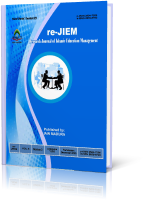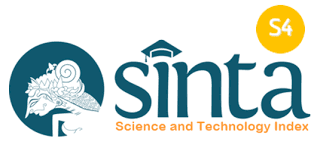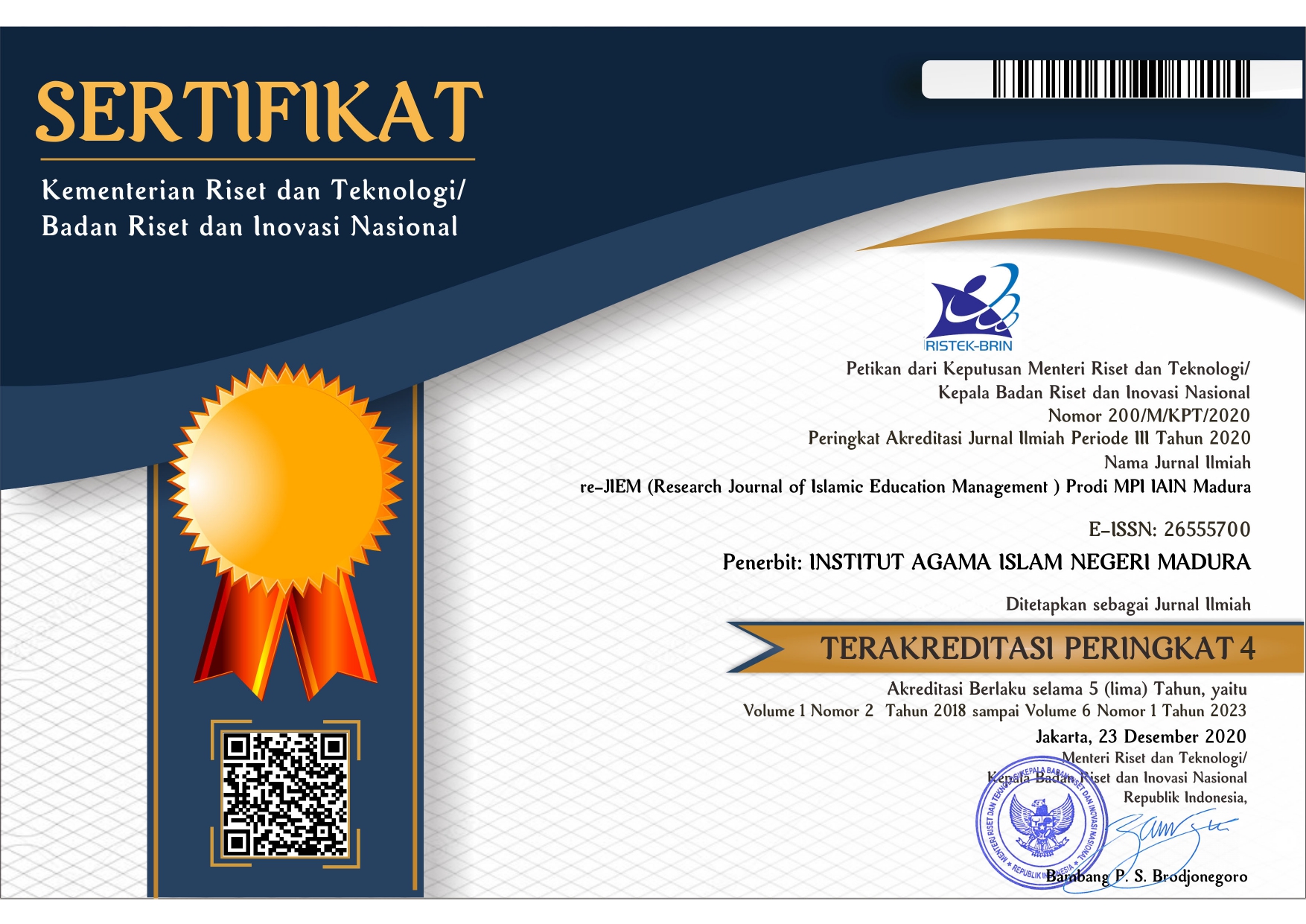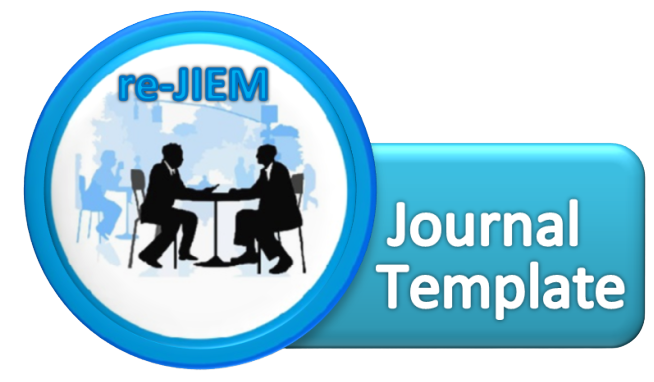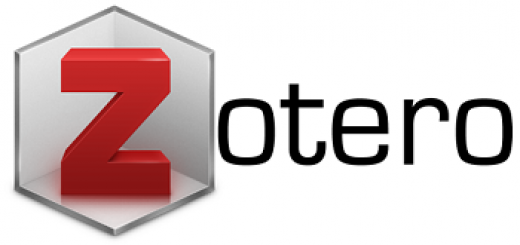MANAGEMENT OF QUALITY IMPROVEMENT IN LEARNING BASED ON DIGITALIZATION AT MADRASAH UMMUL QURO AT-TARBAWIYAH PUTRI PLAKPAK PEGANTENAN PAMEKASAN
 Abstract views: 297
,
Abstract views: 297
,
 PDF downloads: 217
PDF downloads: 217
Abstract
This research aims to explore the implementation, results, and supporting and inhibiting factors of digitalization-based learning quality improvement management implemented at Madrasah Ummul Quro At-Tarbawiyah Putri. This research was conducted using a qualitative model with a variety of case study approaches. The results of this research show that the implementation of management to improve the quality of digitalization-based learning at Madrasah Ummul Quro At-Tarbawiyah Putri was carried out in three stages, namely planning, implementation and evaluation. The results of the management of improving the quality of digitalization-based learning are very visible, it is easier for teachers to convey learning, and female students can easily understand lessons related to visualization. Supporting factors in improving the quality of digitalization-based learning include developments in digitalization and the demands of the times, the availability of digital technology, and full support from the boarding school leadership, as well as the enthusiasm of the teacher council in improving the quality of learning. Meanwhile, the inhibiting factors are that the cost of providing digital facilities is very expensive, and teachers' digital literacy abilities are uneven.
Downloads
References
Ainun, Fadia Puja, Heni Setya Mawarni, Lulu Sakinah, Nabila Ayu Lestari, and Tebi Hariyadi Purna. “Identifikasi Transformasi Digital Dalam Dunia Pendidikan Mengenai Peluang Dan Tantangan Di Era Disrupsi.” Teachin.Id 6, no. 1 (2019): 1570–80. https://journal.upy.ac.id/index.php/pkn/article/view/2778.
Alam, Md. Jahangir, Rakibul Hassan and Keiichi Ogawa, “Digitalization of higher education to achieve sustainability: Investigating students’ attitudes toward digitalization in Bangladesh,” International Journal of Educational Research Open 5, (2023): 2. https://doi.org/10.1016/j.ijedro.2023.100273
Bartolomeus, Galih Visnhu Pradana, and Mario Pratama Yohanes. “Peran Digitalisasi Media Pembelajaran Terhadap Kualitas Pembelajaran.” Jurnal Sosial Humaniora 13, no. 2 (2022): 145–53. https://ojs.unida.ac.id/JSH/article/view/4989/3309.
Effendi, Mukhlison, and Suradi Suradi. “Transformasu Kurikulum Pesantren: Telaah Pemikiran KH. MA. Sahal Mahfudh Dan Nurcholish Madjid.” Cendekia: Jurnal Kependidikan Dan Kemasyarakatan 12, no. 1 (2016): 15. https://doi.org/10.21154/cendekia.v12i1.361.
Fiantika, Feny Rita. Metodologi Penelitian Kualitatif. Sumatra Barat, 2022. PT. Global eksekutif teknologi.
Holis, Khoirul, Sherly Quraisy, and Ali Nurhadi. “Peningkatan Mutu Pendidikan Melalui Stakeholder Madrasah Aliyah (Tinjauan Hasil Penelitian Dan Teori G.R. Terry).” CONSILIUM Journal: Journal Education and Counseling 3, no. 1 (2023): 140–52. https://unars.ac.id/ojs/index.php/consilium/article/view/2934/2162.
Hutapea, Retno Hasijolan. “Instrumen Evaluasi Non-Tes Dalam Peningkatan Hasil Belajar Ranah Afektif Dan PSikomotorik.” Jurnal Teologi Dan Pendidikan Kristen Kontekstual 2, no. 2 (1999): 151–65. https://www.jurnalbia.com/index.php/bia/article/view/94/pdf.
Inayati, Mahfida, and Nurul Zainab. “Pengembangan Bahan Ajar Kerangka TPACK Berbasis Video Pembelajran Pendidikan Agama Islam Dalam Meningkatkan Semangat Belajar Siswa.” Jurnal Cendekia: Media Komunikasi Penelitian Dan Pengembangan Pendidikan Islam 15, no. 2 (2023): 96–105. https://journal.stitaf.ac.id/index.php/cendekia.
Maliki, Putriani L, and Alfian Erwinsyah. “Evaluasi Manajemen Pembelajaran Di Madrasah.” Adaara: Jurnal Manajemen Pendidikan Islam 10, no. 1 (2020): 24–37. https://doi.org/10.35673/ajmpi.v10i1.854.
Nurhadi, Ali, and Dedi Yusup. “Manajemen Pembelajaran Berbasis Pendekatan Perubahan Perilaku Dalam Meningkatkan Motivasi Belajar Siswa Di Smp Negeri 3 Pademawu Pamekasan.” Re-JIEM (Research Journal of Islamic Education Management) 2, no. 2 (2019): 288–304. https://doi.org/10.19105/re-jiem.v2i2.2871.
Rahmawati, Indriana, and Nur Rahmi Sonia. “Manajemen Peningkatan Mutu Pembelajaran Siswa Di MTs Darul Huda Mayak Tunatan Ponorogo.” Jurnal Edumanagerial 1, no. 2 (2022): 77. https://ejournal.iainponorogo.ac.id/index.php/edumanagerial/article/view/1497.
Rostini, Deti, Lina Herlina, and Hanafiah. “Manajemen Peningkatan Mutu Pembelajaran Biologi Dengan Menggunakan Pendekatan Problem Based Learning.” Jurnal Education and Development 9, no. 4 (2021): 658–64. https://journal.ipts.ac.id/index.php/ED/article/view/3298/2118.
Santoso, Eko Budi, M. Abdullah Hamid, Andi Warisno, An An Andari, and Agus Sujarwo. “Sistem Manajemen Perencanaan, Pelaksanaan Dan Evaluasi Pembelajaran Di Smp Qur’an Darul Fattah Lampung Selatan.” Al Wildan: Jurnal Manajemen Pendidikan Islam 1, no. 3 (2023): 146–55. https://doi.org/10.57146/alwildan.v1i3.1520.
Solichin, Muchlis, Moh. Hafidz, and Hilmi Qosim Mubah. “Kualitas Program Persiapan Guru Tugas Di Pondok Pesantren Mambaul Ulum Bata-Bata Panaan Palengaan Pamekasan.” Re-JIEM (Research Journal of Islamic Education Management) 2, no. 2 (2019): 305–20. https://doi.org/10.19105/re-jiem.v2i2.2870.
Sripuniati. “Pengelolaan Peningkatan Disiplin Kerja Guru Di SMP Negeri 1 Papalang Kabupaten Mamuju.” Jurnal Administrasi, Kebijakan, Dan Kepemimpinan Pendidikan (JAK2P) 2, no. 1 (2021): 5–24. http://eprints.unm.ac.id/19972/1/SRIPUNIATI_JURNAL.pdf.
Sukmawati, Ellyzabeth. Digitalisasi Sebagai Pengembangan Model Pembelajaran. Batam: Cendikia Mulia Mandiri, 2022.
Suyono. “Upaya Peningkatan Mutu Pembelajaran Melalui Supervisi Akademik Di Smpn 7 Sampang.” JIEM (Research Journal of Islamic Education Management) 4, no. 2 (2021): 193–205. https://doi.org/10.19105/re-jiem.v4i2.5837.
Syahrijar, Iqbal, Udin Supriadi, and Agus Fakhruddin. “Upaya Meningkatkan Mutu Pembelajaran PAI Melalui Pembelajaran Berbasis Digital (Studi Eksploratif Di SMA Negeri 15 Dan SMA Alfa Centauri Kota Bandung).” Journal on Education 5, no. 4 (2023): 13766–82. https://doi.org/10.31004/joe.v5i4.2389.
Trisnantari, Hikmah Eva, Prim Masrokan Mutohar, and Sulastri Rini Rindrayani. “Manajemen Peningkatan Mutu Pendidikan Berbasis Karakter Bangsa Dengan Sistem Fds (Full Day School).” Jurnal Pendidikan Karakter, no. 1 (2019): 116–32. https://doi.org/10.21831/jpk.v0i1.21947.
Wakiah, Maryatul, and Jamiludin Usman. “Manajemen Peningkatan Mutu Kompetensi Lulusan Bidang Kewirausahaan Dalam Memenuhi Standar Nasional Pendidikan Di Smk Annuqoyyah Guluk-Guluk Sumenep Jawa Timur.” Re-JIEM (Research Journal of Islamic Education Management) 3, no. 1 (2020): 23. https://doi.org/10.19105/re-jiem.v3i1.3517.
Wang, Yilei, Daocheng Hong, and Jun Huang. “A Diffusion of Innovation Perspective for Digital Transformation on Education.” Procedia Computer Science 225 (2023): 2439–48. https://doi.org/10.1016/j.procs.2023.10.235.
Warsiyah, Warsiyah, Muna Yastuti Madrah, Ahmad Muflihin, and Agus Irfan. “Urgensi Literasi Digital Bagi Pendidik Dalam Meningkatkan Keterampilan Mengelola Pembelajaran.” Dimas: Jurnal Pemikiran Agama Untuk Pemberdayaan 22, no. 1 (2022): 115–32. https://doi.org/10.21580/dms.2022.221.10042.
Wulandari, Tria Ayu, and Hilmi Qosim Mubah. “Implementasi Kurikulum Dalam Memanfaatkan Sumber Belajar Sebagai Penunjang Pembelajaran.” Re-JIEM (Research Journal of Islamic Education Management) 5, no. 1 (2022): 117–31. https://doi.org/10.19105/re-jiem.v5i1.5717.
Copyright (c) 2024 Ach. Syafiq Fahmi Fahmi

This work is licensed under a Creative Commons Attribution-ShareAlike 4.0 International License.
Authors who publish with this journal agree to the following terms:
Authors retain copyright and grant the journal right of first publication with the work simultaneously licensed under a Creative Commons Attribution-ShareAlike 4.0 International License that allows others to copy and redistribute the material in any medium or format with an acknowledgment of the work's authorship and initial publication in this journal and also allows to remix, transform, and build upon the material for any purpose, even commercially with contributions under the same license as the original.
Authors are able to enter into separate, additional contractual arrangements for the non-exclusive distribution of the journal's published version of the work (e.g., post it to an institutional repository or publish it in a book), with an acknowledgment of its initial publication in this journal.
Authors are permitted and encouraged to post their work online (e.g., in institutional repositories or on their website) prior to and during the submission process, as it can lead to productive exchanges, as well as earlier and greater citation of published work.


